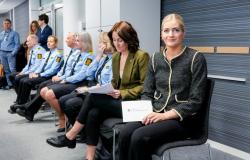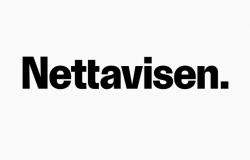– The value of national tests is not seen as a teacher in the classroom. It is not the educational support for students it is intended to be, nor does it provide the management information that the authorities need. When a test has two purposes, it is difficult to organize it.
That’s what Marianne Lange Krogh, leader of the Oslo Education Association, says.
Krogh points out that the tests should serve two purposes – both to provide the authorities with information about how Norwegian schools are doing, but also to promote learning for the pupils. She believes that the national tests do neither.
– The question is what to do with these tests, when you know that they do not provide good enough management information and are not perceived as educational support, then you might as well get rid of them.
She believes that the teachers are not listened to – despite the fact that the politicians think otherwise.
– As a union representative, I feel that a number of measures are being initiated without teachers being involved in the process. For example, new digital systems – please be kind. Or an absence system. You have to listen to the teachers, because they know where the shoe hits. I don’t have the best experiences with it. That is why I think we need to have a dialogue that starts from what happens in the classroom, not what the need from above is, but what we as teachers need, she says.
—
National tests
- Today’s national tests will give schools knowledge about the pupils’ basic skills in reading, arithmetic and English.
- The electronic tests are carried out in the autumn, shortly after the pupils have started the 5th, 8th and 9th grades.
Source: Norwegian Directorate of Education
—
Also read: Insurance expert: – I always say no to these offers
Preoccupied with cooperation
Krogh’s move comes after the Education Policy Forum, a group within the Labor Party, also called for the removal of the national tests. They want to convince the rest of the party, which is still standing for the national tests.
They refer, among other things, to the Education Association and the National Association of Schools, but also to the Prøitz committee’s report that came out in November last year.
The report advocates making changes to the national tests, so that they serve a greater educational purpose. However, Krogh believes it is not good enough.
– When the purpose of new tests is the same as with the old ones, it is difficult to see what these should look like if they are to be both more supportive of learning and also provide national and municipal authorities with information on how to proceed, says Krogh.
– For us in the Education Association, it is difficult to see that this is not just another form of national tests, since the purpose is the same. Authorities must have information about how a school is run, and associated management information, but not through national and learning support tests, we believe.
She believes it must be rethought.
Elise Waagen, education policy spokeswoman for the Labor Party, says she is keen to include the teachers in the discussion when they later draw up reforms based on the report.
– It has not been that long since we received the report to the committee, and we have said that we will deliver on it in a report to the Storting later this year. So we are going to maintain this marching speed, and are keen to find a good solution here together with the parties in the school, so that we achieve something that will stand the test of time. We are keen to do this jointly with the teachers, and we expect the Norwegian Education Association and the other organizations to be involved in this work, says Waagen.
Elise Waagen, Labor Party. (Parliament)
She believes the teachers’ contribution to the Prøitz report has been important.
– That is why it was important that the teachers were also part of the committee that was set up, they have a very important voice that we must certainly listen to. I hope that they feel that they have been an important contributor to the work, she says.
Also read: Ex-general on Putin’s war: – Ukraine is going to lose
School based on vision
The national tests were introduced by Høyre’s Kristin Clemet during the Bondevik 2 government. Høyre still has faith in the tests, which turn 20 this year.
– The introduction of national tests was a step forward in the work on quality development in schools when they were introduced 20 years ago. If we are to ensure knowledge in the school, we must have knowledge about the school. Therefore, the Conservative Party wants to keep the national tests and still have transparency about the results. It is important that we have both learning-supporting tests and tests that provide the school, school owner, national authorities and us as a society with information about developments in schools.
That’s what Jan Tore Sanner, school policy spokesperson for the Conservative Party, says.
He says the Conservative Party is also not closing the doors completely to doing something about the national tests.
– I perceive the proposal from the Prøitz committee as a further development of the national tests. We are of course open to improving and further developing the national tests. The key thing is that the tests should provide information about the pupils’ basic skills, and information about the development in the school to school owners and national authorities, he says.
Jan Tore Sanner, Right. (Parliament)
When asked whether the Conservative Party is willing to listen to the teachers’ wish to scrap the national tests, he is more skeptical.
– Knowledge policy must be knowledge-based. I am surprised that many people think it is better not to know how the school is going. We cannot have a knowledge policy that is only based on opinion, says Sanner.
Also read: Wrote a book about life as a poor person: – Learned early on that it pays to keep quiet
Not a proper picture
Krogh understands the desire for status reports from the school, but believes that national tests do not paint a correct picture.
– Everyone always wants information because you want the very best for your child, but here it’s about what this information says something about, she says.
She believes it is important that the national tests do not become a resting place in the absence of a better system.
– It is possible that you don’t have any clear alternatives, but then the politicians have to talk properly with us in the teaching profession, then we can help them with that, says Krogh.
– Maybe it’s comfortable to have a system you’ve had for 20 years to compare, but the calculations you’ve made are wrong. After all, there has also been a committee that says they should be abolished.
She also does not think the students are seen in the discussion about the national tests.
– We hear stories about pupils already in 4th grade dreading 5th grade, because then they will have national tests. The kids are cracking up, she says.
– They sit digitally and work for an hour and a half and read texts and have to decode and interpret them. I’ve had students where I’ve thought “Damn you, you poor thing, now you’ve been sitting here for an hour and a half and you haven’t understood a thing”. And I knew that from before. The headmaster knew that from the start, says Krogh, and repeats that they know where the shoe presses.
Also read: Time to hit the emergency brake
Also read: You’re allowed to dream big, girls
Keep yourself updated. Get a daily newsletter from Dagsavisen
Tags: Sees national tests Dagsavisen
-






